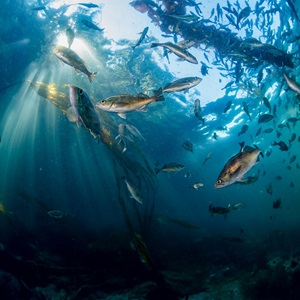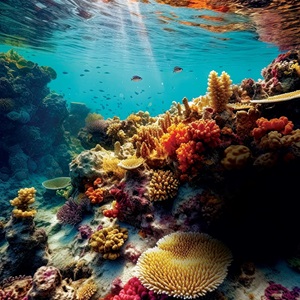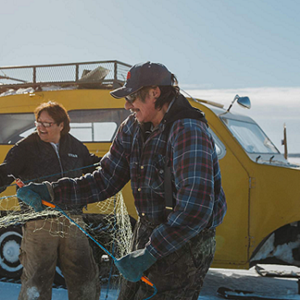Deep dive into British Columbia’s Albacore Tuna Fishery
Off the rugged Pacific coast of British Columbia, a fleet of independent fishers chases one of the ocean’s most prized catches—
Albacore tuna. For the people behind the catch—many of whom come from families that have been fishing for generations—the tuna is more than just a source of income. It’s a way of life, and a commitment to sustainable fishing; a promise for the future health of our ocean.
These skilled fishers use the time-honored method of troll and jig —a low-impact, selective approach to fishing tuna.
Fishing an apex predator sustainably
Troll and jig is when a fishing boat lets out multiple lines with a feathered jig (lure) and barbless hooks behind a moving boat. This gear type is particularly effective at catching tuna as it mimics how albacore chase and catch their prey.
It also significantly reduces bycatch of other species, including seabirds and marine mammals.
“Since tuna is a highly migratory species harvested in the open ocean, Canada and the USA must work together to manage the fishery,” reports the
B.C Seafood Alliance. International cooperation is essential to
effective tuna management and can require agreement across up to 50 nations and jurisdictions. Around the world, 716 fisheries in 63 countries are engaged in the MSC program working to end overfishing and reduce their environmental impact.
An indicator species to watch
Tuna play several crucial roles in the ocean - they help prevent the overpopulation of smaller prey species and transport essential nutrients across the ocean, both of which help maintain balance and biodiversity in marine ecosystems.
Changes in tuna populations, migration patterns, and even the levels of certain contaminants found in their bodies can help us better understand shifts in ocean health.
Not only is it an indicator species of ocean health but tuna accounts for approximately 30% of all fish harvested globally. Canada saw a 582% rise in the volume of MSC certified tuna sold from 2021/22 to 2023/24. To meet market demand for tuna now and in the future, it’s essential that this species be fished sustainably adhering to the
MSC Standard.
British Columbia’s albacore tuna fishery stands as a beacon of hope, proving that together, the Marine Stewardship Council and our certified fisheries can fish and protect the ocean at the same time. Now that’s a standard worth upholding.







.tmb-thumb300.png?Status=Master&Culture=en-US&sfvrsn=99d138bd_1)
